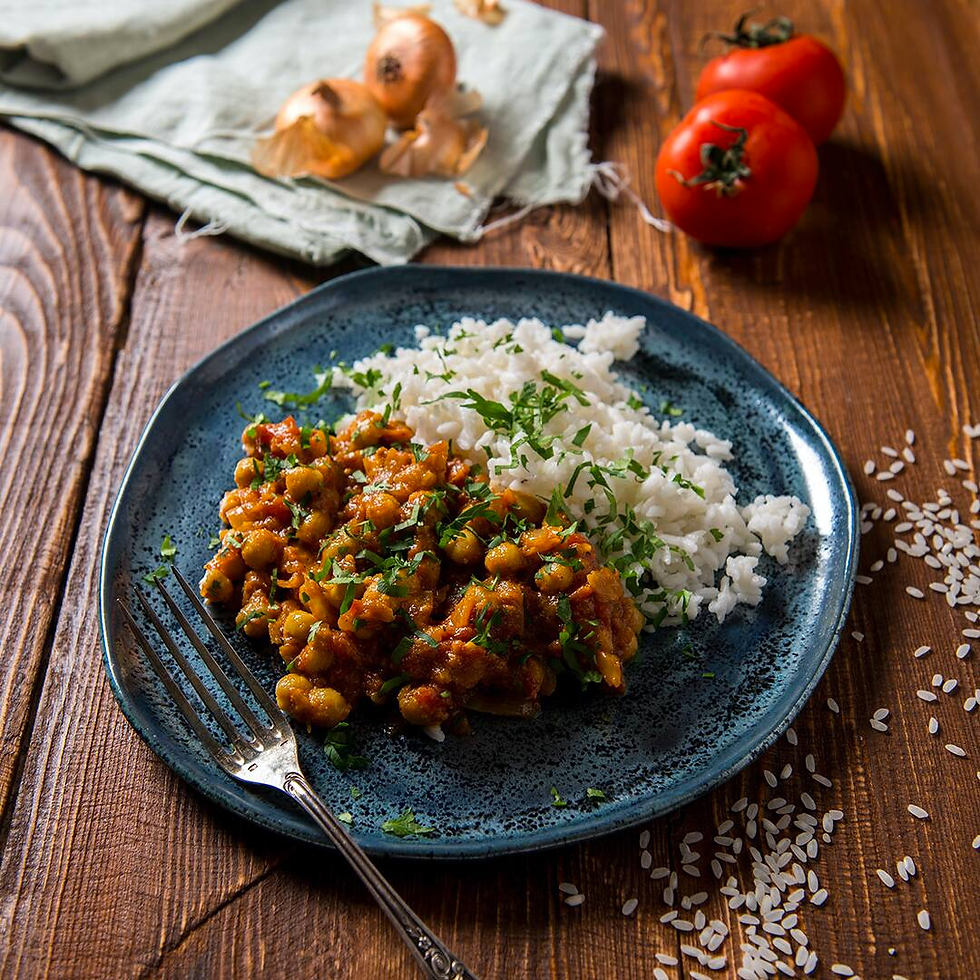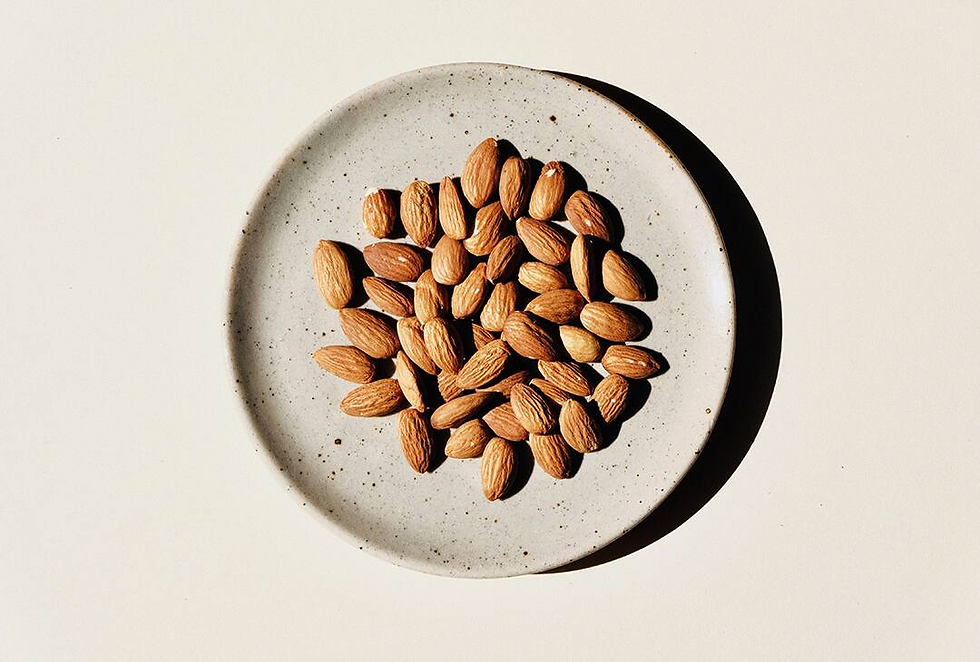The Anti-Cancer Diet: Foods To Add To Your Plate Everyday, According To A Dietitian
- Chella Po, MS, RD

- Oct 26, 2022
- 4 min read
Let’s dig into the science to tell us what to really eat to prevent cancer
As seen in Metro Style , October 26, 2022
How many times have you read that eating one specific food reduces your risk of cancer? And never eat some other food that causes it? This list is not that. Instead, let’s dig into the science to tell us what to really eat to prevent cancer. Heard rumors about soy, sugar, and dairy? Read on!
As a dietitian, I see how diet myths can actually hurt our health. Even I have stressed over and avoided whole food groups thinking they were unhealthy when they were actually nutritious, and also delicious! Now, I believe in using science to feel empowered instead of afraid when it comes to health, no one needs that extra stress anyway.

Photo by No Revisions on Unsplash Cancer Risk: The Big Picture There are actually over 100 types of cancers, with different causes and risk factors. While some are out of your control like genetics, there are many lifestyle factors you can control. According to the World Health Organization, 30 to 50% of cancers can be prevented by a healthy lifestyle, and a large research review found that an overall healthy eating pattern can lower risk by 10 to 20%. So yes, your choices do still matter. The key here is to focus on your overall lifestyle, and every day eating pattern instead of fixating on individual foods. Also, a “healthy diet” looks different to everyone. But the extra good news is it also reduces risk of other chronic diseases like type 2 diabetes and cardiovascular disease. Not to mention you feel better too!

Your Plate When it comes to cancer prevention, focus on plants. They are alive, and so contain powerful compounds like antioxidants and phytochemicals that repair and protect our cells. Plants foods also contain fiber, which are shown to prevent colorectal cancer, and support a healthy weight, and gut health which has a role in immune health. Here are food groups to focus on, and some food ideas that you can likely find at your supermarket. Know that any foods in these categories still count as long as you eat them often! Plant Proteins & Soy
Reduce red meat and replace processed meat with more fiber-rich plants like black beans, chickpeas, and our humble monggo on ¼ of your plate. Canned works too!
Soy is safe! Studies show that soy from tofu, miso, and edamame actually protect against breast cancer, especially in Asian women. Soy contains “isoflavones,” compounds act like estrogen in the body. High levels of estrogen are linked to cancer, but isoflavones are a weaker form and can lower our levels by blocking natural estrogen.
Keep in mind: less processed forms of soy are not the same as powders and isolates commonly found in highly processed foods which have been stripped of most of their nutrients.

Plant proteins like garbanzos | Photo by Dragne Marius on Unsplash Whole Grains Yes, I’m telling you—you can eat carbs! Choose fiber- and nutrient-rich whole grains like brown, red, or black rice, adlai, quinoa, whole wheat bread and pasta, and oatmeal. Carbs should make up about ¼ of your plate! Fruits and Vegetables
The best fruit and veggies to eat are any that you like. Yes, even if fruit has sugar. The idea that sugar fuels cancer is a common myth. In reality, sugar or glucose fuels all our cells, including healthy ones. And because of fiber, vitamins, antioxidants and more, they are much more beneficial than harmful.
Fruit and veggies get their color from types of antioxidants and phytochemicals they contain, so it’s best to ‘eat the rainbow’ and eat a variety. Fill the last ½ of your plate with fruit and veggies. Frozen is budget-friendly and works too!
Try antioxidant-rich frozen berries, okra which is local and high in fiber, tomatoes which contain the powerful antioxidant lycopene, and petchay Baguio and bok choy which have sulforaphane, a potentially anti-cancer compound.

Eat the rainbow! | Photo by Nathan Dumlao on Unsplash
Healthy Fats
Adding plant fats like nuts, nut butters, seeds, olive oil, and avocado can also help to decrease cancer risk as they contain the antioxidant vitamin E. Healthy fats also support our immune system and reduce inflammation.
Add fatty fish like bangus and low-salt canned tuna with omega 3’s, which are currently being studied for their ability to delay or reduce tumor development.

Healthy fats like almonds | Photo by Jocelyn Morales on Unsplash Dairy? There are few consistent studies on dairy, and some find they can decrease risk of colorectal cancer. However, a few studies also link high intakes to prostate cancer in men. More research is needed particularly in Asian populations, so in the meantime, you don’t need to completely eliminate dairy, but you may want to consume dairy in moderation. Also since many Filipinos are lactose intolerant, plant based milks with minimal added ingredients can help you meet your calcium requirements instead. Water, Green and Black Tea Don’t forget to stay hydrated! Green and black tea contain polyphenols, which can have a protective effect against cancer, so these can be something to add for an extra boost.

Green Tea | Photo by Anton Darius on Unsplash A healthy diet is an important way to minimize cancer risk and improve your overall health and wellbeing, but don’t worry if you haven’t been eating healthily, you can start today. Go slow: choose just one or two of the foods from this list, then learn to buy, cook, and eat them regularly. What would you actually like to eat? Which meal in your day can use some improvement? Focus on the big picture, and don’t stress over the small things like special occasions, or eating something “unhealthy” once in a while. We all have different environments, lifestyles, and preferences, so build a plant-rich and delicious eating style that works for you.
—Chella Po






Comments